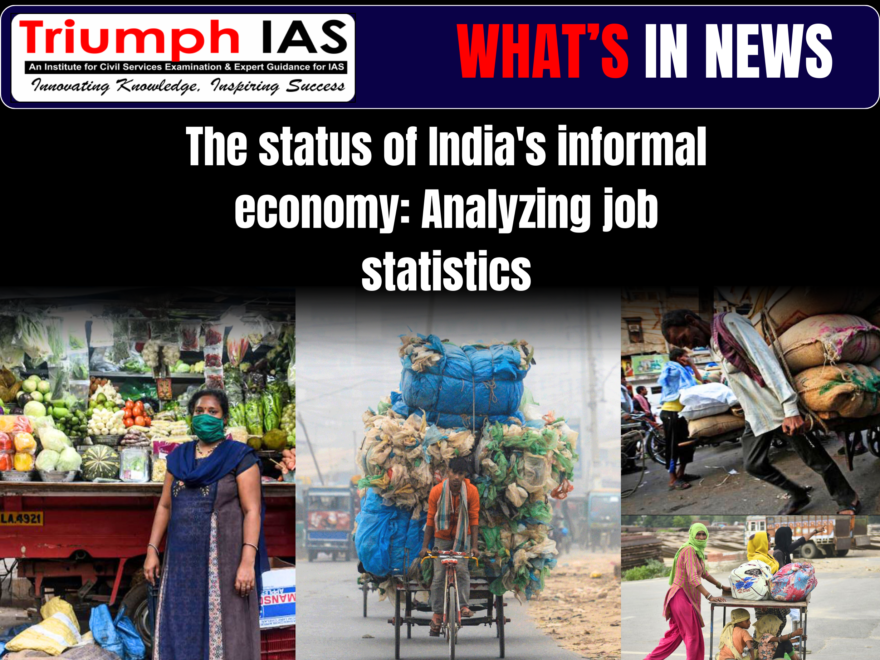The status of India’s informal economy: analyzing job statistics
India’s informal economy, which encompasses economic activities that operate outside the purview of government regulation and taxation, plays a significant role in the country’s economic landscape. This article aims to analyse the current state of India’s informal economy by examining relevant job statistics and considering diverse perspectives.

Defining the Informal Economy
The informal economy in India includes a wide range of economic activities, such as small-scale manufacturing, retail trade, and personal services. These activities are often characterized by low levels of organization, lack of formal contracts, and limited access to formal credit and social security benefits.
Job Statistics in the Informal Sector
According to recent estimates, the informal sector accounts for a significant portion of India’s workforce. The International Labour Organization (ILO) reports that in 2018, the informal economy employed 81.2% of the total employed population in India. This figure highlights the importance of the informal sector in providing employment opportunities to a large segment of the population.
Impact of COVID-19 on Informal Jobs
The COVID-19 pandemic has had a significant impact on the informal economy, with many workers losing their jobs or experiencing reduced income. A study by the Azim Premji University found that during the nationwide lockdown in 2020, 34% of salaried employees in the informal sector lost their jobs, while 73% of informal workers reported a reduction in their income.
Challenges Faced by Informal Workers
Informal workers face numerous challenges, including lack of job security, limited access to social security benefits, and vulnerability to economic shocks. Additionally, informal workers often lack bargaining power and face discrimination in the labor market.
Government Initiatives for the Informal Sector
The Indian government has taken several measures to support the informal sector, such as the implementation of the Mahatma Gandhi National Rural Employment Guarantee Act (MGNREGA) and the introduction of social security schemes like the Pradhan Mantri Shram Yogi Maandhan (PM-SYM) pension scheme[1]. However, more needs to be done to address the challenges faced by informal workers and to promote the formalization of the economy.

Conclusion
The informal economy in India plays a crucial role in providing employment opportunities and supporting the livelihoods of millions of people. However, the sector faces significant challenges, including the impact of the COVID-19 pandemic and the lack of social security benefits for informal workers. To address these challenges, policymakers must adopt a comprehensive approach that includes measures to promote the formalization of the economy, improve access to social security benefits, and support the growth of the informal sector.
Sources:
https://indianexpress.com/article/explained/explained-economics/explained-the-state-of-indias-informal-economy-9459931/
Sociology Optional Program for
UPSC CSE 2025 & 2026
Follow us :



